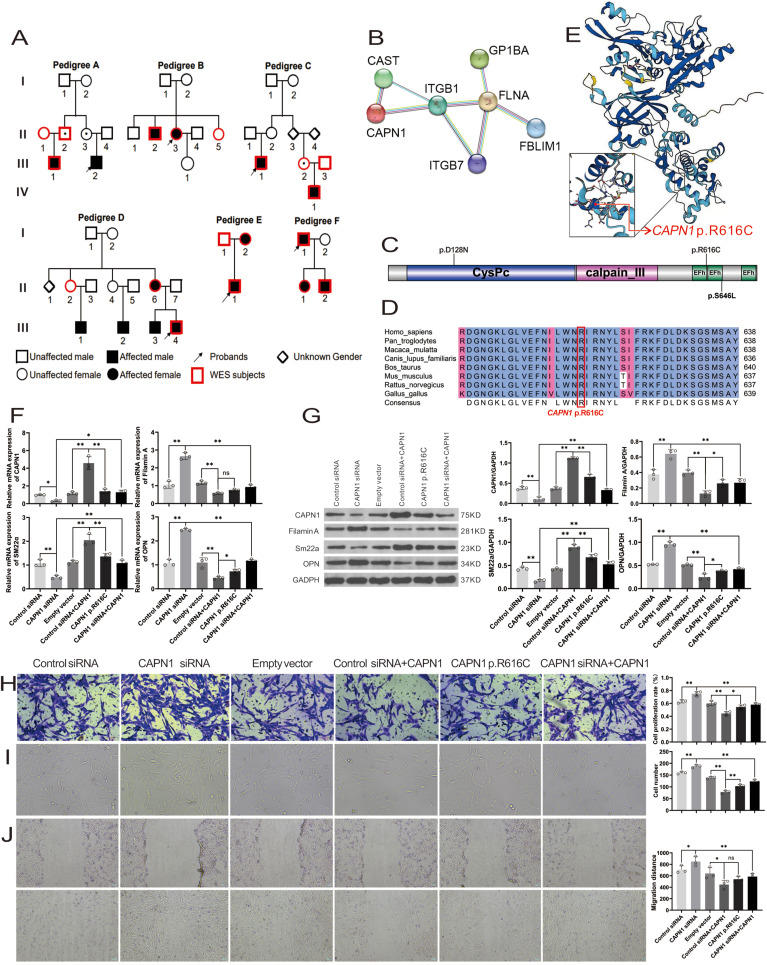
Whole exome sequencing and functional validation identify CAPN1 variants as a cause of Chinese moyamoya disease


Moyamoya disease (MMD, MIM 607151) is a rare vascular condition that has high recurrence, mortality, and disability rates, and an effective treatment for this disease is currently lacking. The main symptoms of affected children and adults include ischemic and hemorrhagic strokes, with an age of onset that follows a bimodal distribution trend at approximately 5 and 40 years of age. Affected individuals are at risk of intracranial hemorrhagic or ischemic stroke, seizures, cognitive impairment, and developmental delays. A strong ethnicity-related effect, combined with family aggregation, suggests a genetic basis for predisposition to MMD. Ring finger protein (RNF213) p.R4810K is only found in 20% of Chinese patients with MMD.1 Other pathogenic variants underlying MMD are yet to be identified.
